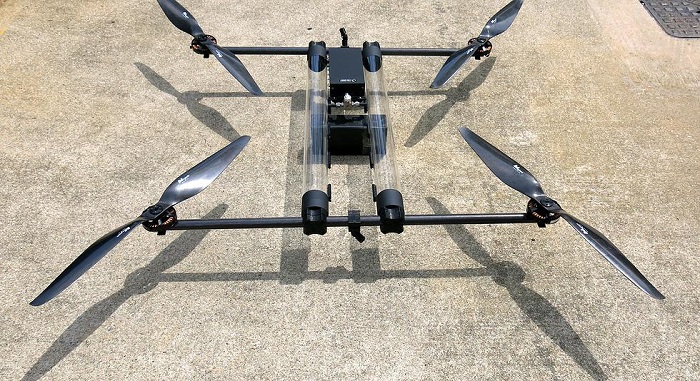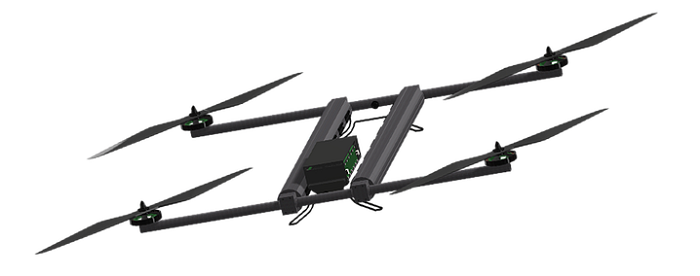Horizon Unmanned Systems (HUS) has introduced a new type of drone called a “hycopter”. It is the world’s first unmanned aerial vehicle (UAV) to use a hydrogen-based fuel cell in order to power its rotors.

The company makes it a point to highlight the significant improvement this approach has on flight endurance. Whereas with today’s models, multi-rotor missions last about 20 to 30 minutes, a hypocopter flight can last several hours at a time.
Specifically, the company lists endurance as lasting four hours with no payload, and 150 minutes while carrying 1kg of payload. To the former stat, that’s about eight to 10 times the average flight duration of equivalent models. Per the latter note, this might be something of interest to companies that are beginning to explore the use of drones for delivering goods.

Another advantage to using a hydrogen-based fuel cell is lower operational costs: it costs just $5/kWh for industrial hydrogen. So, theoretically speaking, one flight would cost about $7.50.
A hycopter stores energy in the form of hydrogen. Going this route, the researchers were able to eliminate energy storage weight which, in turn, led to there being less need for lift power from the UAV. Other worthwhile stats: the hycopter weighs 5kg and can store 4L of hydrogen. In terms of nominal energy, we’re looking at 1414Wh + batteries; hovering power uses 375W, and climb power, 800W, respectively.
The fuel cell was designed by HUS’s sister company, Horizon Energy Systms. “By removing the design silos that typically separate the energy storage component from UAV frame development — we opened up a whole new category in the drone market, in-between battery and combustion engine systems,” said CEO Taras Wankewycz.
In terms of next steps, Wankewycz said the flying prototype is just about ready to go, and should be making its first official flight later this year.
Via HUS
Advertisement
Learn more about Electronic Products Magazine





